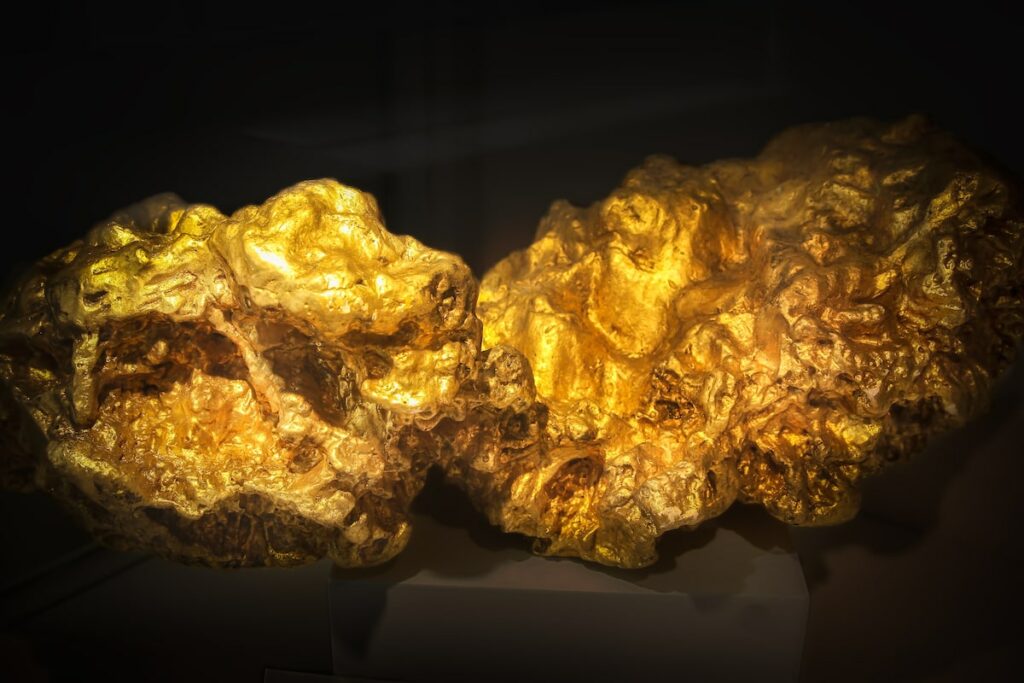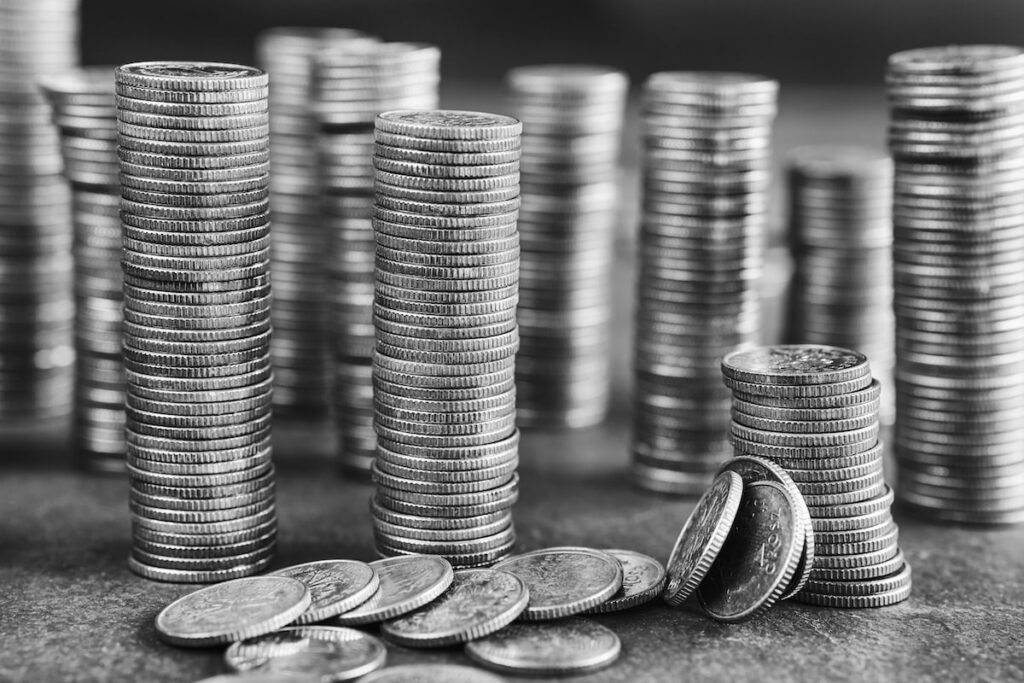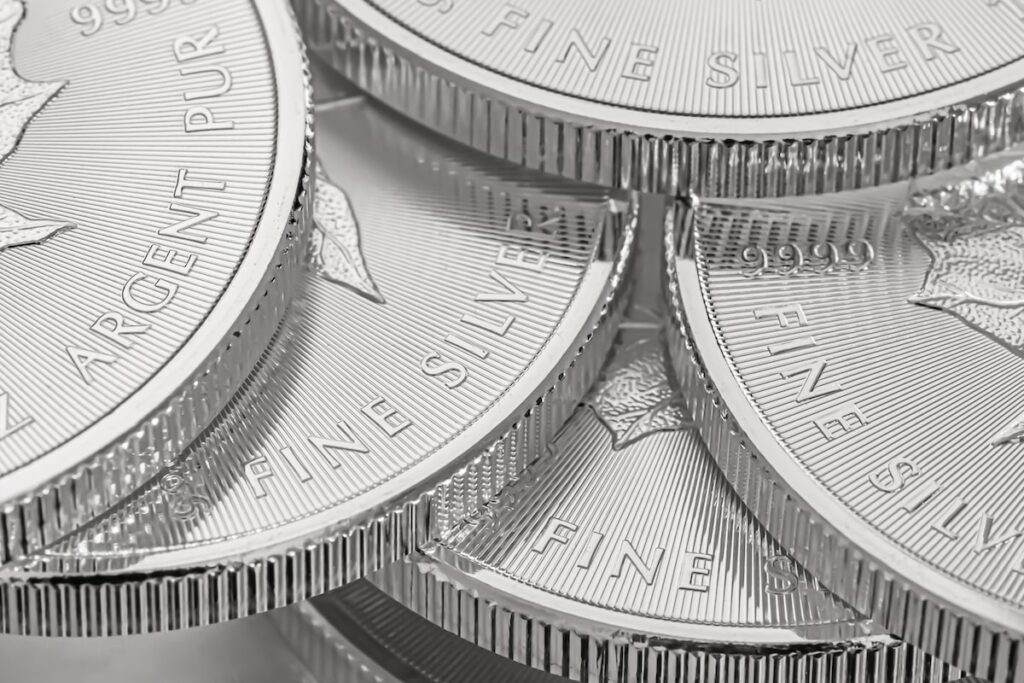Where there is money to be made, typically there are scams – gold and silver are no exception.
I knew this when I started my gold and silver stacking journey, and so I have never been scammed.
I have been lucky by design.
When I first started out, I carried out hours of research and took many precautions to ensure that I would not get scammed and would get the best price possible when buying these precious metals.
So here is a quick overview of my top tips to avoid getting scammed when buying gold and silver:
Avoid gold and silver scams by gaining education, buying from a reputable local or online dealer, and avoiding classified ads, pawn shops, traveling dealers, jewelers, gold and silver TV advertisements and social media ads.
In this article you will find my top tips to spot and avoid gold and silver scams, and a list of typical red flags so you can know how to avoid getting scammed.
Know Why You Want Gold & Silver Before Buying
Before you start buying gold or silver, you should know why you are buying, and how much you would like to accumulate.
Not knowing this increases your chances of buying the wrong thing or getting scammed.
Common reasons people buy gold and silver is to preserve their wealth and hold the precious metals as a hedge against inflation.
Some people speculate that the price of gold and silver will continue to rise over time and believe they could make a profit from their investment.
Others stack gold and silver to opt-out of the Dollar system, and accumulate coins as a means of exchange in case of an SHTF situation.
Therefore, the reason why you want to buy gold and silver will more than likely influence the form and type of precious metal that you will buy.
If you don’t know what you want, people will try to sell you anything, increasing your chances of getting scammed.
Speculators may prefer to purchase large quantities in bars, whereas those stacking for an SHTF situation typically prefer small denominations for barter.
So be sure to understand why you want to buy before purchasing anything. Next, you need to know the day’s spot price.
Know Spot Prices Before Buying
At the beginning of this article I said that I had never been scammed buying gold or silver. That is true.
However I definitely “got had” selling scrap gold.
It was my very first experience in the market and a hard lesson to learn, but this is now ingrained in me: “know the spot price before buying or selling.”
Spot price is how much gold and silver are trading for in the market denominated in Dollars. You can easily find spot prices by searching “Gold Spot Price” or “Silver Spot Price” in Google to know today’s price.
However, the spot price is not what you will pay at the dealer.
Dealers take a cut known as a premium. This is a percentage that gold and silver dealers charge on top of the spot price.
Premiums depend on supply and demand, the type of precious metal you want to buy, the weight, and quantity of gold or silver that you’re planning on purchasing.
Smaller quantities of gold and silver typically have higher premiums because they are more costly to produce. Coins from government mints or that are made as collectables in limited quantities also have a higher premium due to their perceived extra value.
On the other hand larger quantities of gold and silver in plain bars typically have lower premiums because they are easier to produce and increase the dealer’s bottom line. And bullion (non-collectable, non-mint-issued coins) typically have lower premiums.
Comparing premiums is where you have the most control over what you pay.
Before I bought any gold or silver, I compared the premiums charged by all the local dealers in my area for the same products (1 oz silver bullion coin, and 5 g gold bullion bar) and found out who charged the least over spot.
That helped me narrow down my choice of a dealer.
However, price is definitely not the only thing that you need to consider when choosing who to buy your gold and silver from.
Buy From a Reputable Local Dealer
Buying from a reputable dealer is definitely my favorite way of acquiring gold and silver for stacking purposes.
You can get to know them, learn more about how things are going when it comes to supply and demand, and pay in cash.
But it’s not always easy to find a reputable dealer!
So I’m going to give you my top tips to help you find the best dealer in your area.
How to find a reputable gold and silver dealer:
- Search for gold and silver dealers in your area in Google Maps
- Read all of their Google Reviews
- Search for “their business name BBB” and “their business name Trustpilot” and read the reviews they have on these websites
- Chose the dealer that has the highest reviews and best feedback
- In Google, see when the store is the least busy
- Go to the highest rated store when it is the least busy
What you are looking for in the reviews is the fact that they are kind and patient with new buyers, that they provide good prices, and that they are attentive to their customers’ needs.
There are a lot of things that you do not want to see in those reviews, so let’s have a look at a couple of red flags.
Red Flags
- Pushy salespeople
- Feeling pressured
- Impatient with new buyers
- Cheating new buyers
- Saying gold or silver will make you rich
- Collecting any personal information
- Bad reviews or no reviews
If there are no reviews at all, move on. Especially if this is your first purchase.
I recommend going to the best rated store, most reputable in your area when it is not busy so you can have the best experience possible as a new buyer.
If you go when it’s packed with people, the clerks may have less time to provide you with the best first buying experience.
I am lucky to have found an amazing dealer in my area. They are kind, attentive and very patient with new buyers.
But I know a lot of people don’t have the luxury of having a local dealer in their area. And so in that case you may want to purchase your gold and silver online.
Buying online requires extra precautions, so let’s have a look at those now.
Buy From Reputable Online Dealers
Buying from reputable online dealers can be a great way to start stacking gold and silver.
However, there are so many gold and silver scams out there!
It’s extremely important to be very cautious when purchasing online. Here are some red flags to look out for to avoid online gold and silver scams.
Red Flags
- Not an HTTPS website
- Western Union or Gift Cards as payment methods
- No Privacy Policy
- No Return Policy
- No Customer Support
- Prices that are too good to be true
Avoid any unregulated platforms and only choose to buy from reputable online dealers like SD Bullion. Once you have found one you like, only purchase a small quantity to start out to see how the experience goes.
When searching for dealers, definitely be careful not to click on any Google Ads.
Oftentimes scam websites will spoof or pretend to be an official website by running a Google Ad so it appears before the real dealer in the search results. Pay attention to what you click on before leaving the Google Search result page.
Also, do not buy on AliBaba. The gold and silver coins and bars on their site are often fake imitations from China.
And since you are just starting out in your gold and silver stacking journey, avoid purchasing anything on eBay or Amazon until you are more advanced in your ability to detect fake gold and silver.
Avoid Buying From Classified Ads
I definitely do not recommend buying anything from strangers if you are brand new to purchasing gold and silver.
I’m not talking about reputable dealers in this case – I mean peer-to-peer from classified ads or online platforms like Facebook Marketplace, Kijiji, or Craigslist.
The danger of this is purchasing fake gold and silver.
Since you are still at the beginning of your journey it will probably be much harder for you to spot fake gold and silver.
Personally I would not buy from classified ads until I was very good at recognizing fake coins, bullion, and bars. And even then, there is still a risk of purchasing a product that is not authentic if you do not have a very powerful machine to ensure that what you’re buying is real!
I also do not buy from, or sell to pawn shops, traveling dealers, or jewelers, and here’s why.
Avoid Pawn Shops, Travelling Dealers, and Jewelers
At the beginning of this article I said that my only negative experience with precious metals was early on in my journey when I “got had” selling gold.
I did the homework to find the most reputable jeweler in my area (I did not yet know my now favorite gold and silver dealer).
Even if they had the best reviews, the jeweler was still crooked and took advantage of the fact that I didn’t know the spot price when they bought some scrap gold jewelry from me.
They really took advantage of my ignorance and bought back what I had at an awful price.
My bad was not having done my homework on the spot price before going in. I did not have a clear plan of what I wanted and why. This was all very new to me at the time and I would not make that same mistake now.
Since I am now much more informed, I can spot the red flags they used on me from a mile away.
Red Flags
- Pushy salespeople
- Feeling pressured
- Saying they have the best sales/buy back price
- Impatient with new buyers or sellers
- Saying what you are selling is worthless when you know it’s valuable
I’m sure that there are great pawn shops, traveling dealers, and jewelry stores out there.
However, from my personal experience, I completely avoid these places when I am buying or selling gold for stacking purposes.
Most of the time, their goal is to get the highest margin possible, and they don’t care about their customers who are stacking.
Most just want to make as much money as possible per transaction.
That brings me to TV and social media ads, another place where being taken advantage of is pretty common.
Avoid Gold or Silver TV and Social Media Ads
TV and social media ads are made to make you feel a sense of urgency and FOMO (Fear of Missing Out).
I don’t have a TV, but my grandparents do. Anytime I was at their home and they had American TV on, there were always so many scummy ads targeting the elderly. From insurance, to medical coverage, to gold and silver.
Although many of these dealers actually sell gold and silver, they are charging extremely high premiums.
Typically, these ads make elderly people feel an extreme sense of urgency so the companies can sell them anything at an extremely high price.
The same thing goes for social media ads. It’s very easy to target specific age groups, political views, and financial statuses via Facebook, YouTube, and Instagram ads.
These are not scams per say as you typically will receive gold or silver, but you will have paid an extremely high price over spot.
Marketers use this information to show targeted ads to very specific people who may be inclined to fall for their offers.
Don’t Fall For Social Media Comment Scams
The last point I want to make is about social media comment scams.
You have probably seen them all over YouTube, Instagram, and Facebook.
But do you know how to recognize them?
I thought everyone knew about these scam comments – but it turns out hundreds of people fall for them every day.
The scam consists in fake profiles trying to impersonate the channel the content is on.
Here is how they work:
When you go to the comments section on your favourite gold, silver, Bitcoin, or financial channel:
- You see comments from profiles with the same cover image as the influencer
- They ask readers to contact their channel (but it is not the influencer)
- They pretend they will send you gold, silver, or Bitcoin
- They scam you by asking for personal information and taking your money
I can say from experience that deleting fake comments is a game of wack-a-mole.
It is not the influencer’s fault that there are fake comments on their channel.
Social media platforms have a real problem on their hands with fake comments, and they will not be going away any time soon.
So it is your job to not get scammed.
Here are tips to not fall for a social engineering scam:
- Do not think the influencer is asking you to contact them: be suspicious by default
- Click the profile to see if they have any followers or subscribers
- If their subscriber count is lower than the real influencer it is fake
- Do not contact WhatsApp phone numbers
- Most honest influencers do not ask for their follower’s personal information: do not send anyone any personal information
Always being suspicious will help you not fall for social media scams.
So in my opinion the best thing to do is to know exactly why you’re buying gold and silver, to find a reputable local dealer who doesn’t charge crazy prices over spot, and to stay away from any forms of pressure sales.
Check out the other guides on our site for more:
- What Kind of Silver to Buy? (What to Stack)
- 10 Types of 1 oz Silver Coins (Ranked)
- Should you Buy Silver Bars or Coins?
- Can You Get Silver Without Buying It? (Free Silver)
- Why Stack Gold & Silver?
- Are Silver Bars Traceable?
- Can Silver Change Color?
I hope that helps you on your stacking journey 🙂
Sources
Fraud advisory: Precious metals fraud. CFTC. (n.d.). Retrieved November 30, 2022, from https://www.cftc.gov/LearnAndProtect/AdvisoriesAndArticles/fraudadv_preciousmetals.html




